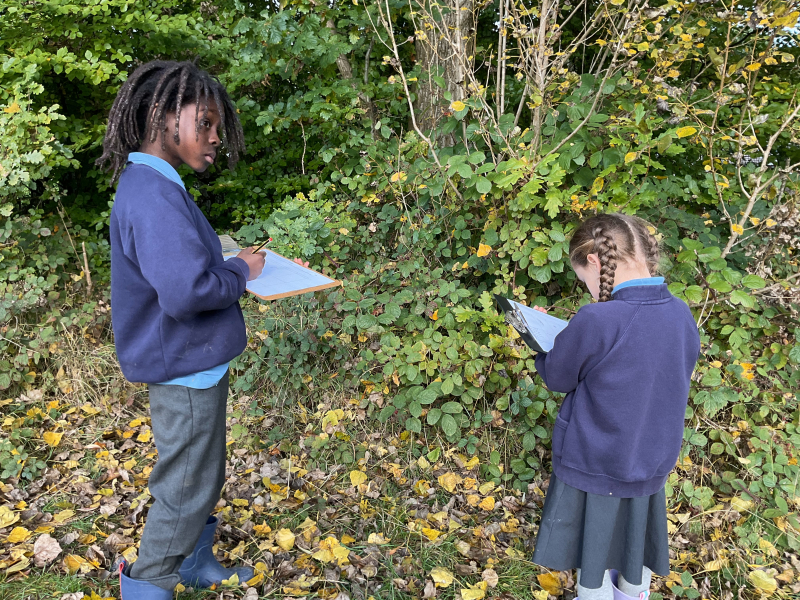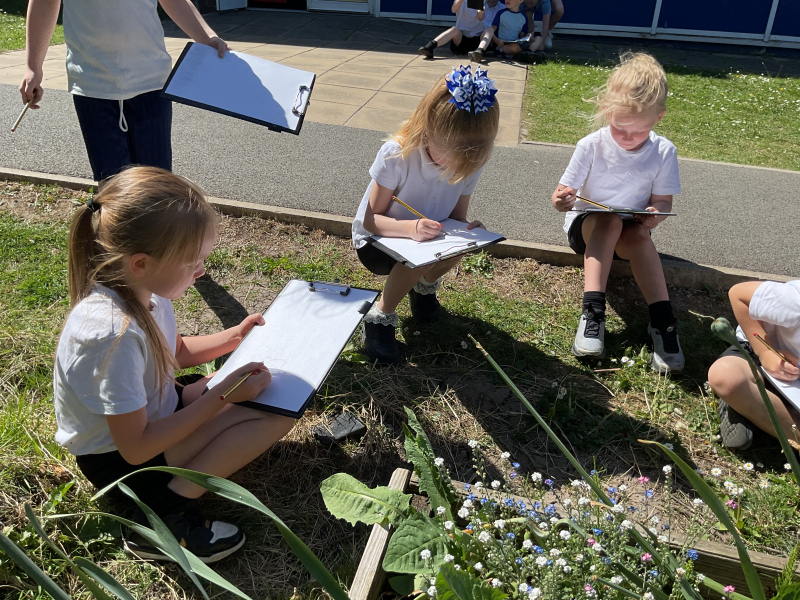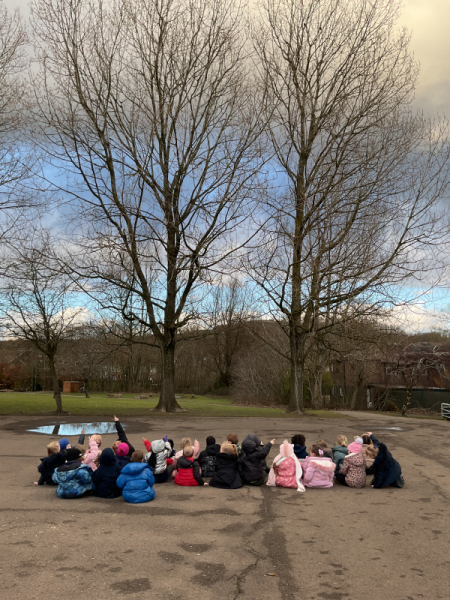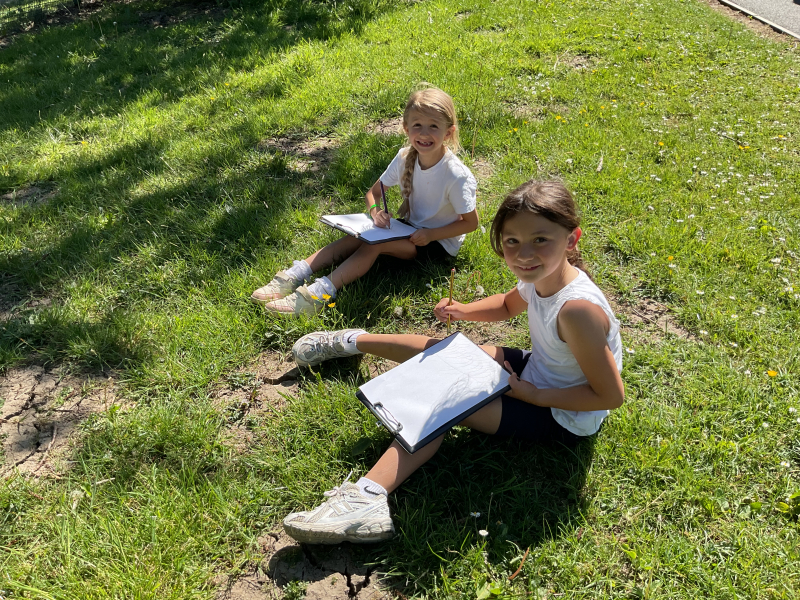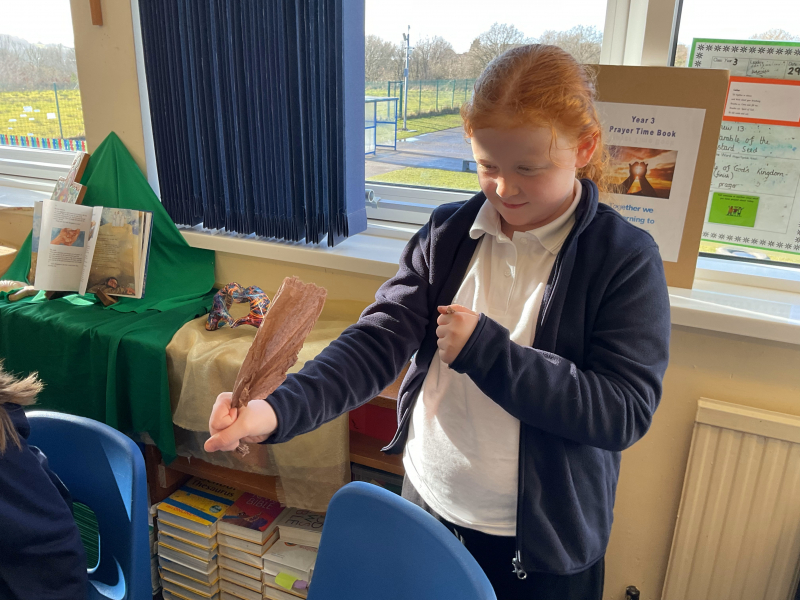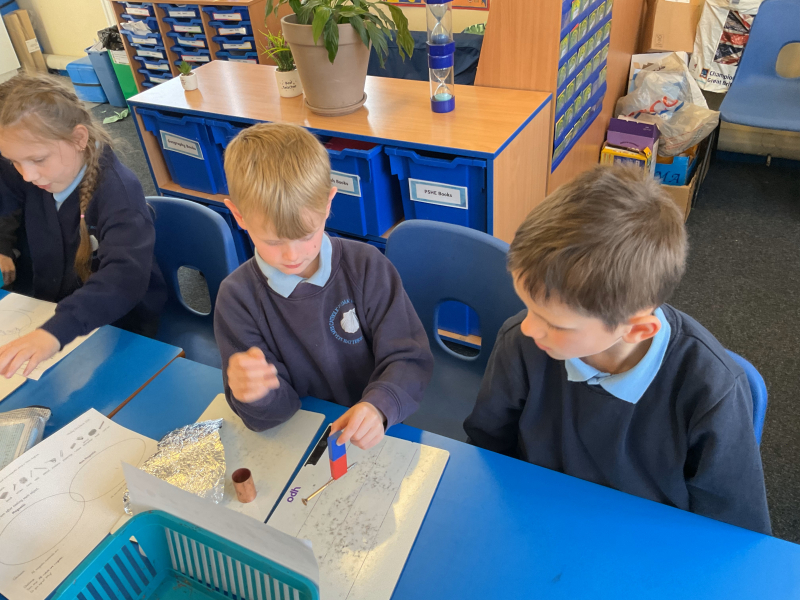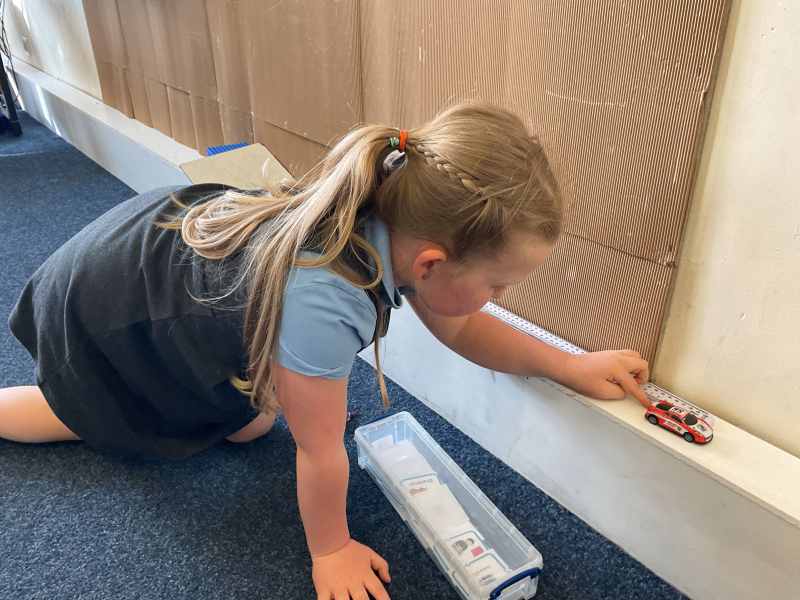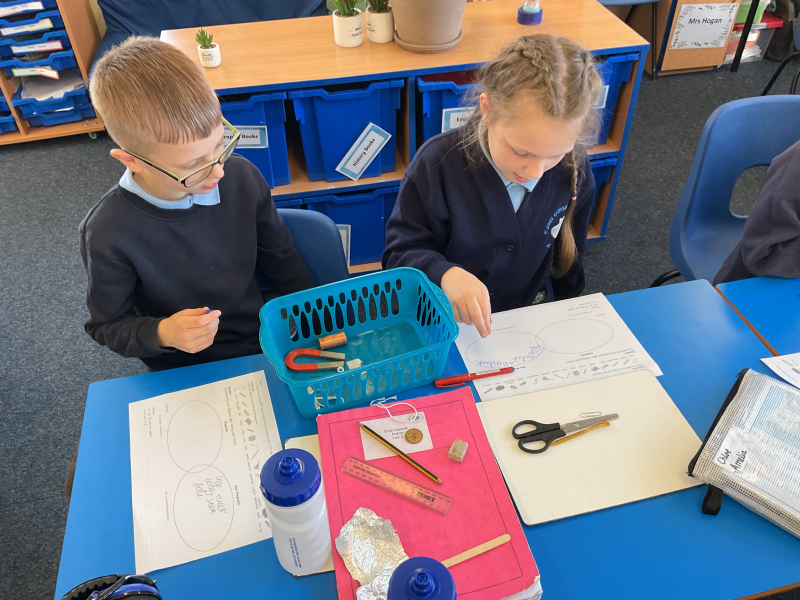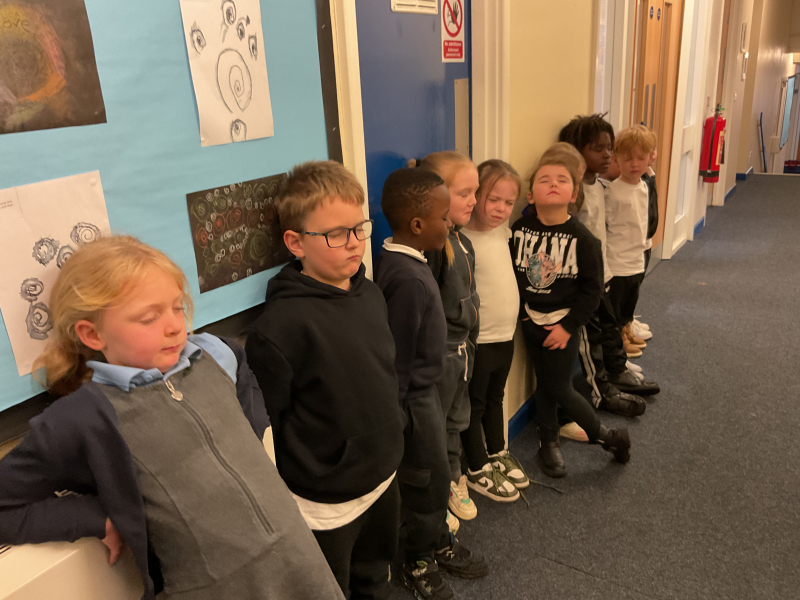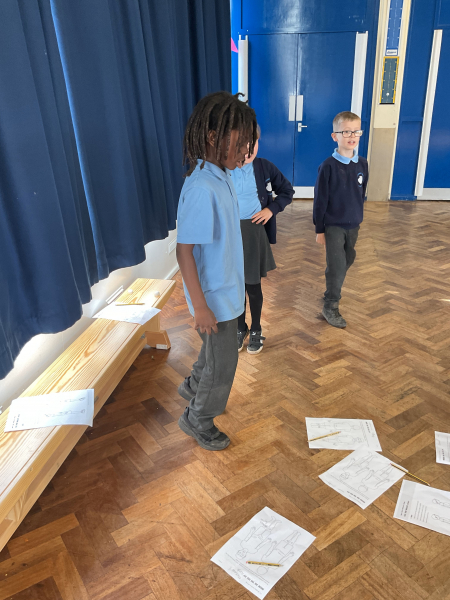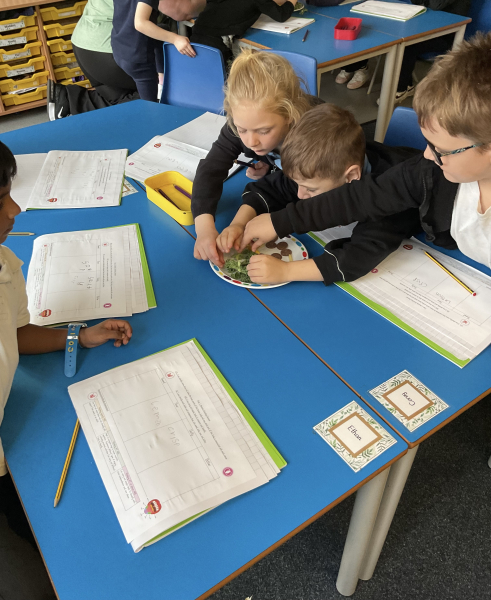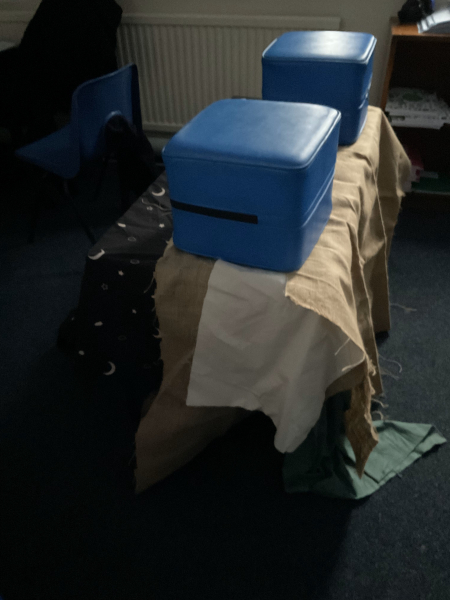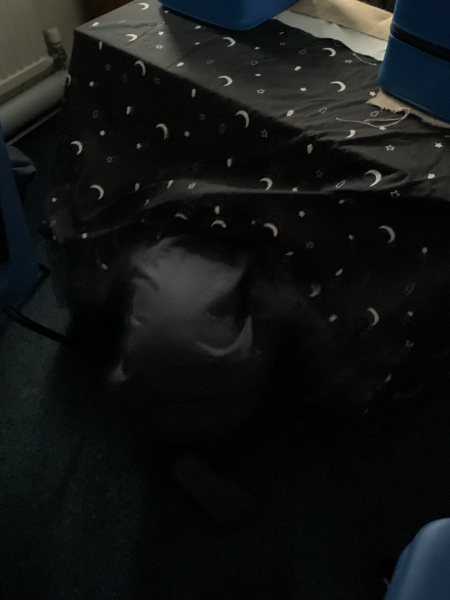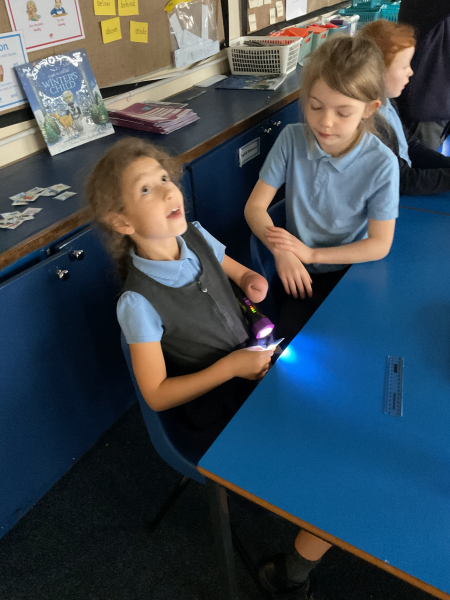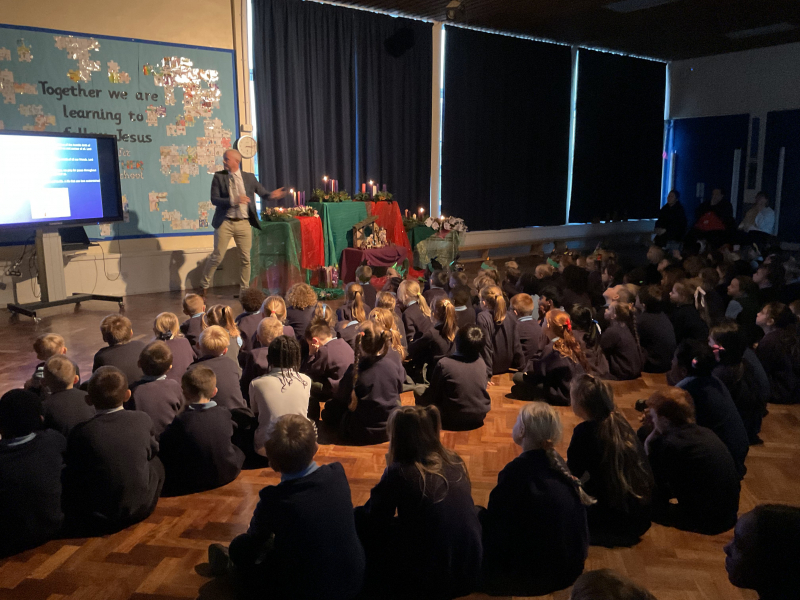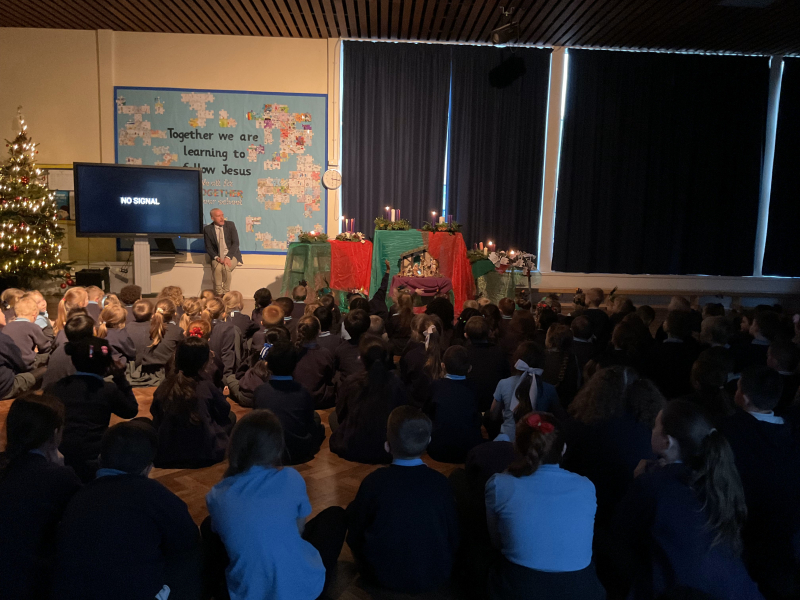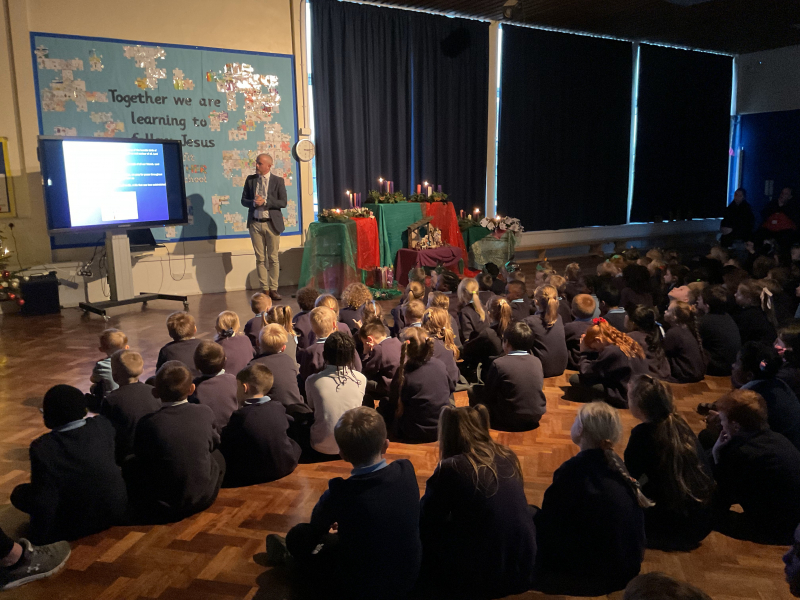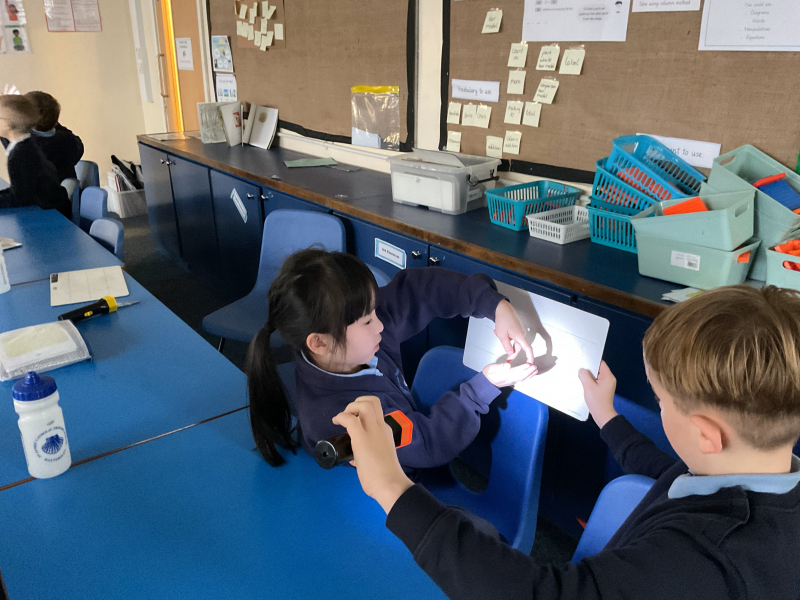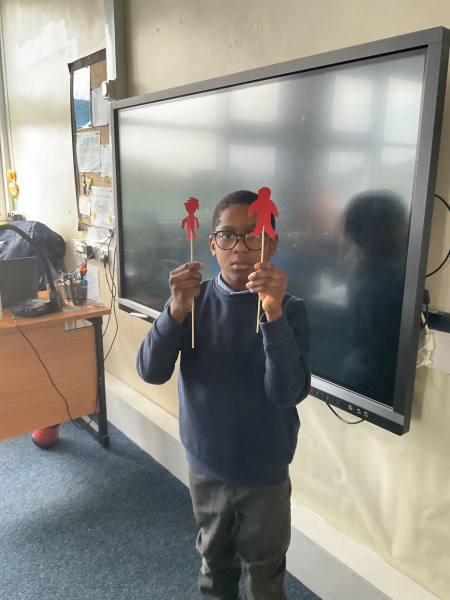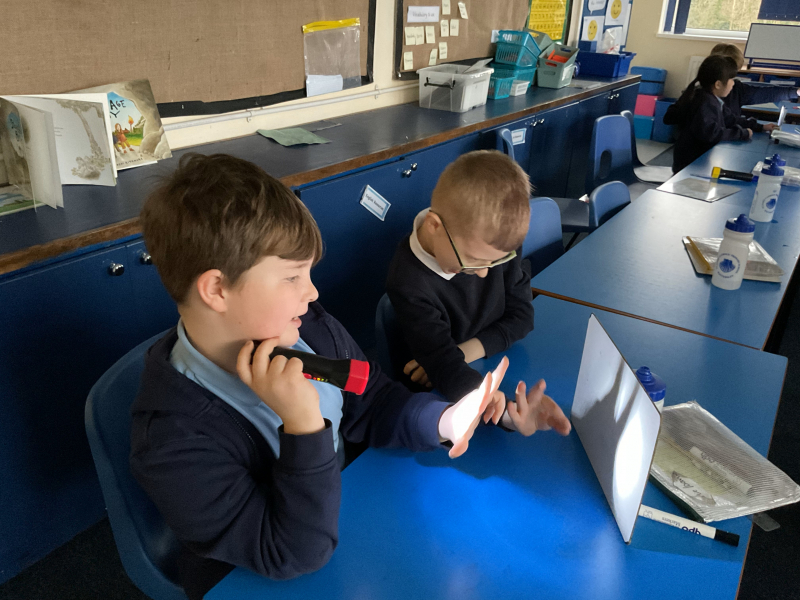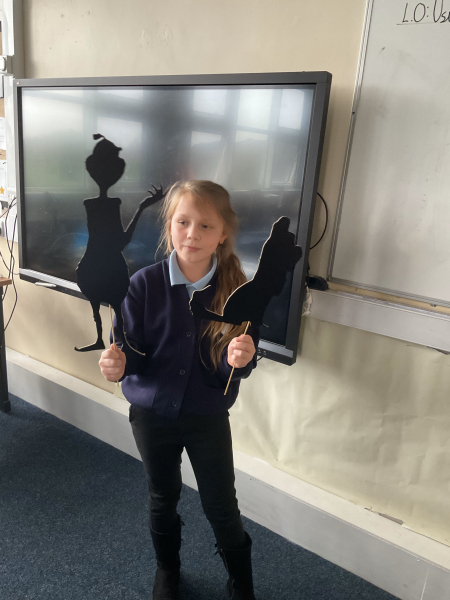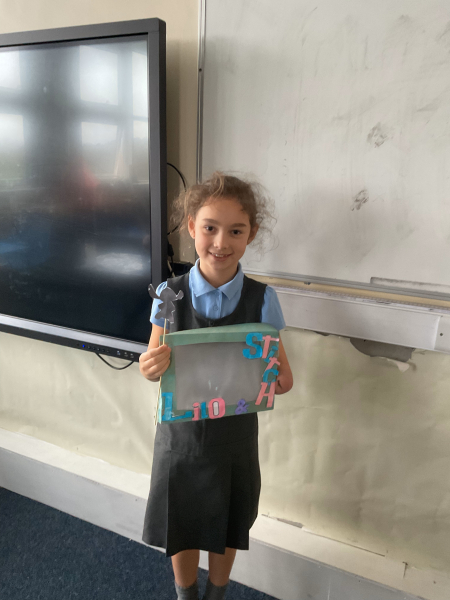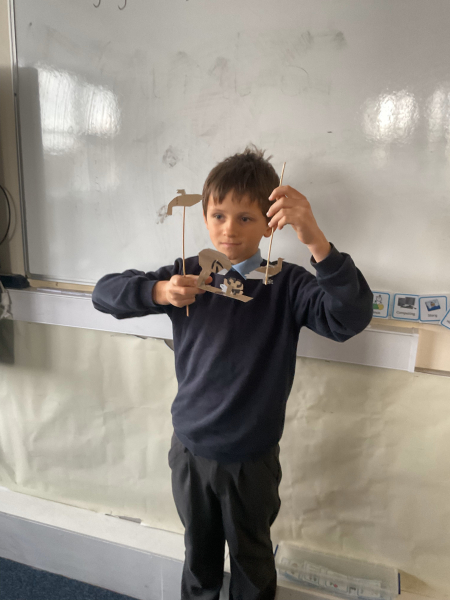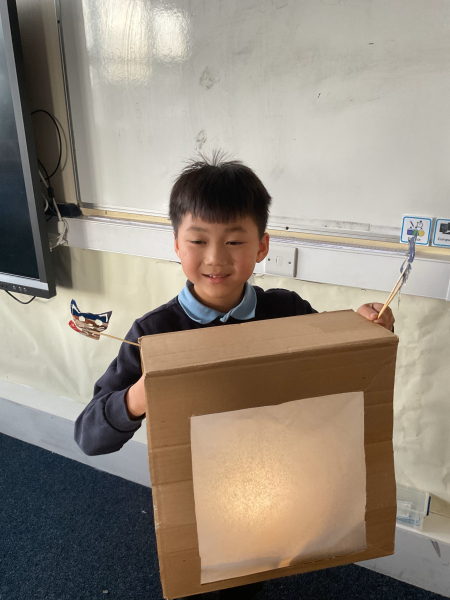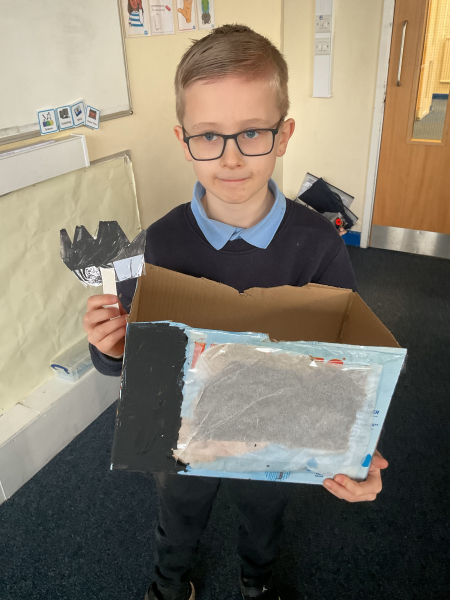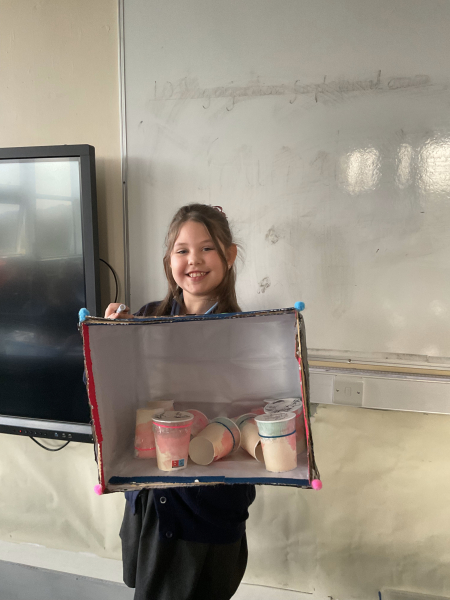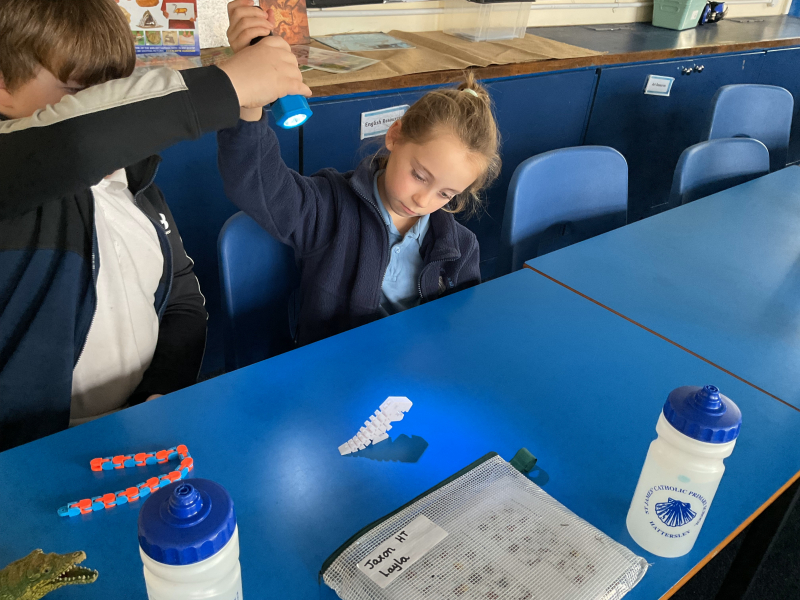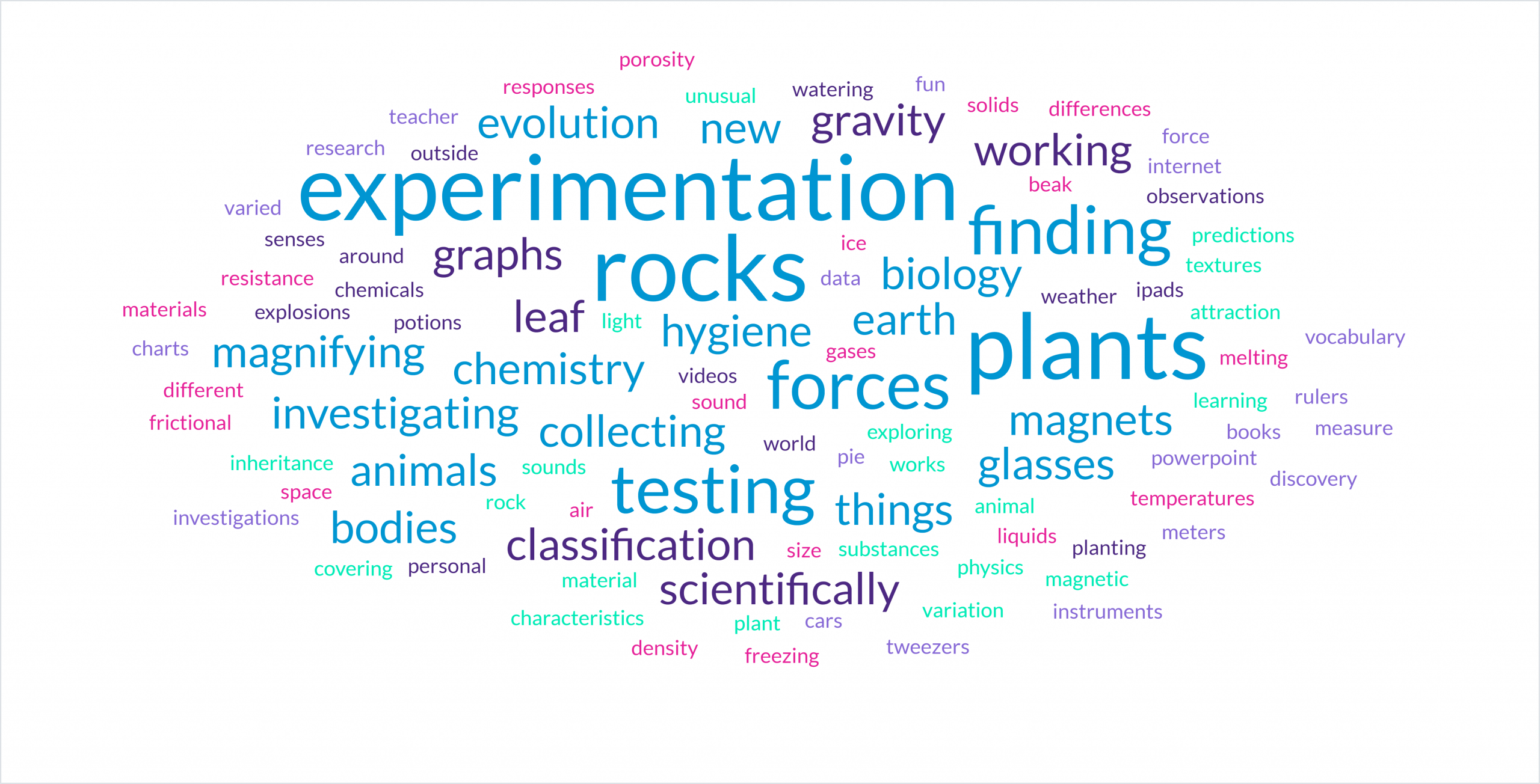We love science at St James’!
Thank you for visiting the science curriculum page. We hope you enjoy finding out about how important science is to us at St James, and how it is taking place.
Science Curriculum Intent
At St James’ we aim to promote and develop children’s enjoyment and enthusiasm for science through exciting, practical, first-hand learning and opportunities to experiment, explore and investigate. We aim to provide the foundations for understanding the world, and develop a sense of excitement and curiosity about it. We encourage children to ask questions, use their scientific knowledge to predict answers, and then use their working scientifically skills to find out answers.
We teach substantive knowledge; the facts and concepts across the three disciplines of biology, physics and chemistry, and disciplinary knowledge; the skills scientists use to work scientifically.
Although these working scientifically skills must be taught specifically to the children, it is always done through the biology, chemistry and physics topics of each year group. Once taught, children use their working scientifically skills to answer scientific questions through a range of scientific enquiries; such as observing over time, pattern seeking, identifying, classifying and grouping, comparative and fair testing, and researching using secondary sources.
At St James’ we ensure the progression in working scientifically skills are planned for in each year group, and this is shown in the St James Working Scientifically and Maths skills Overview document below. We also recognise that pupils should apply their mathematical knowledge to their understanding of science, including collecting, presenting and analysing data. We recognise these maths skills must be taught before they can be used effectively in science. This is therefore planned for in the same document, as is progression in vocabulary, which is also vital. As we know that the skills of working scientifically underpin what is means to be a scientist, we use the TAPs Focussed Assessment of Working Scientifically document, to ensure we are teaching and assessing in all areas of working scientifically.
Below are some key documents that explain how we plan for progression in all areas of the science curriculum.
St James Science Curriculum Overview
St James Working Scientifically and Maths skills Overview document
Progression in Working Scientifically Silver Threads
Progression in working scientifically skills
EYFS Progression in Working Scientifically Skills
Links and Discrepancies between Maths and Science
Other Useful Documents
Implementation – This is what science looks like at St James’!
Plants!
Forces!
Animals, Including Humans!
Light!
Impact – Pupil Voice
We asked our pupils to describe what they enjoy about science lessons at St James’.
We used their responses to make a word cloud:
Our Science Journey at St James’
Our science journey begins in Nursery and Reception where we spend our days exploring the world around us. Our teachers provide us with a huge range of scientific opportunities both indoor and out, encouraging us to handle, explore, comment and ask questions about what we observe in our natural world (such as plants, animals and natural objects), and we spend a lot of time discussing why things happen and how things work while we are building, making and playing. We also look closely at similarities, differences, patterns and changes.
This is done by going on nature walks and collecting objects; making rubbings from trees or stones; exploring solids and liquids through cooking; growing a plant from seed; looking closely through magnifying glasses and taking photos; and recording what we find through drawing, writing and making models. All of this lays an excellent foundation to develop inquisitive scientists!
Once we are in Year 1 we begin following the National Curriculum for Science. All of our science learning is a combination of the substantive knowledge and understanding of biology, chemistry and physics content, alongside the development of our practical skills in working scientifically (known as disciplinary knowledge) through experiencing a range of scientific enquiry, all designed to develop curiosity and excitement.
Our science lessons are fun!
Lessons are always as practical as possible, encouraging us to investigate for ourselves, be curious, and discover answers to our own questions. In Key Stage One the curriculum focusses on first-hand practical experiences.
We learn about how to identify and grow plants, investigating what a plant needs to grow; naming the parts of the body and investigating the associated senses, and learn about growing up and keeping healthy; identifying and naming birds, mammals, fish, reptiles and amphibians, as well as herbivores, omnivores and carnivores, and look at habitats and food chains; comparing the properties of everyday materials; and observing changes across the four seasons.
This is all done through observing closely, observing changes over a period of time, noticing patterns and relationships, grouping and classifying, carrying out simple comparative tests, and finding things out using secondary sources of information such as books, photographs and videos. We also work across the curriculum, using our mathematical skills to collect, present and analyse data, our teamwork skills to work collaboratively, and our literacy skills to communicate our findings both verbally and written.
Some examples of us working scientifically in Key Stage One are our fantastic taste tests, blindfolded obstacle courses and feely bags to investigate senses; investigating the best material to make an umbrella for Teddy; using glitter to observe germs and hygiene; going on nature walks to spot signs of the seasons; and growing our own beanstalk like Jack and the Beanstalk!
As we move into Key Stage Two we build on our biology, chemistry and physics knowledge, and further develop our skills in working scientifically. We ask more of our own questions to broaden our scientific view of the world around us, and we begin to make decisions about the best types of scientific enquiry and equipment needed to answer them. We begin to make predictions, draw simple conclusions and use more detailed scientific language to talk about what we have found out, as well as suggesting improvements and raising further questions.
We learn about the functions of the different parts of a flowering plant and their life cycle, as well as grouping and classifying plants and animals and investigating their habitats; the role of skeletons, muscles, the digestive system and teeth in humans and other animals, and producers, predators and prey in food chains; to compare, group and describe rocks and fossils; about light, reflection and shadows; how magnets repel and attract, and their effect on different materials; the differences between solids, liquids and gases and the role of evaporation and condensation in the water cycle; how sounds are made and the role of vibrations in this; how to construct simple electrical circuits and investigate conductors and insulators.
This is all done through a practical approach. We set up simple practical enquiries, comparative and fair tests; make systematic and careful observations and take accurate measurements using a range of equipment; we gather, record, classify and present data in a variety of ways; we record findings using simple scientific language, drawings, labelled diagrams, keys, bar charts, and tables. Just as in Key Stage One this requires a range of skills from across the curriculum.
Some examples of us working scientifically are designing the best reflective surface for a new coat and the best material to make a curtain out of; investigating which materials are magnetic; testing rock hardness and identifying limestone; investigating the effect of friction on car speeds, and designing and making musical instruments with different pitches and volumes.
As we enter Upper Key Stage Two we develop a deeper understanding of scientific ideas, and become more systematic in our approach to exploring and talking, asking and answering questions, and drawing conclusions based on our data, observations and evidence, as well as understanding that scientific ideas develop and change over time.
We learn about the life cycles of different types of animals, their reproduction, as well as the classification system based on characteristics; the changes that occur as humans grow old, including the impact of diet, exercise, drugs and lifestyle, and the role of the circulatory system; evolution and inheritance, including adaptation; the properties of everyday materials, how mixtures might be separated and reversible and irreversible changes; the sun, the Earth, the planets and the moon, and the explanation of day and night; the forces of gravity, air resistance, water resistance and friction; how light travels in straight lines from a source, to an object and then our eyes; investigating different components and voltage in electrical circuits and represent circuits through symbols in a diagram; and the significance of the work of eminent scientists.
This is all done through planning different types of scientific enquiries to answer questions, recognising and controlling variables where necessary. We use increasing accuracy and precision to take measurements using a range of scientific equipment, and record data and results of increasing complexity using scientific diagrams and labels, classification keys, tables, scatter graphs, bar and line graphs. We use test results to make predictions to set up further comparative and fair tests, and report and present findings in a variety of ways.
Some examples of us working scientifically are researching why we have day and night and observing the inheritance traits of being able to roll our tongue – demonstrating prediction, data recording and presentation, and conclusion skills.
By now we have the foundations of excellent scientists and are ready and excited to continue our learning at Secondary School!





